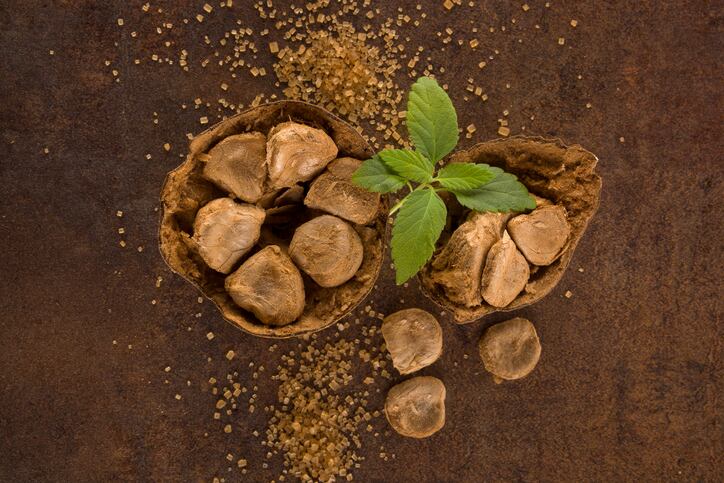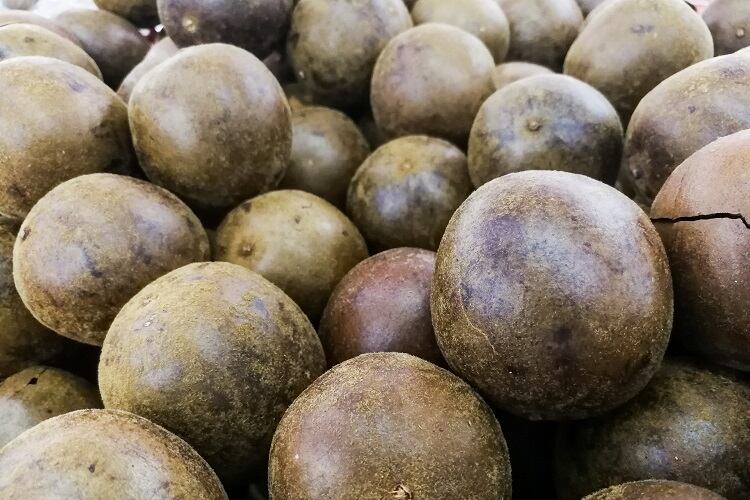With obesity rates tripling since 1975 and diabetes on the rise, governments are increasing pressure on food and beverage manufacturers to limit sugar content in products.
In the UK, for example, the government has implemented a Soft Drinks Industry Levy (SDIL) to encourage beverage manufacturers to reduce sugar in drinks. Outside of sugar-sweetened beverages, Public Health England has challenged industry to cut sugar content by 20% by 2020.
So what is the best way to reformulate? With a plethora of options on the table – including shrinkification, artificial sweeteners, and so-called natural alternatives to the traditional white stuff – which solution provides consumers with a healthy yet sweet substitute for sugar?
Growing interest in Mother Nature’s backyard, and in fruit in particular, is helping to expand these options.
Tapping fruit to cut sugar
Monk fruit, otherwise known as siraitia grosvenorii or luo han guo, is one such fruit helping to reduce sugar content in foods. The plant is native to southern China and northern Thailand and has reportedly been cultivated by monks for centuries.
Monk Fruit Corp, which has offices in China, US, New Zealand and India, has developed a process to capture the fruit’s sweetness for use in food and beverages. “Monk fruit contains natural antioxidants called mogrosides that are 300 times sweeter than sugar,” the company’s general manager David Thorrold told FoodNavigator.
“That’s why just a small amount of monk fruit extract or monk fruit juice can be used to replace sugar – with zero calories.”

Taura Natural Ingredients is another company harnessing the natural power of fruit to help manufacturers reduce sugar in finished food products. The supplier offers a range of fruit pieces and pastes with no added sugar called JusFruit, which EMEA R&D manager Els Vandenberghe told us can reduce sugar content by 30%, while increasing fibre by 60%.
Vandenberghe offered examples where JusFruit can limit sugar content in two traditionally sweet foods: cookies and cakes.
“By replacing sugar in cookies with tapioca starch and by adding Taura JusFruit pieces dosed at 10%, it is possible to reduce the total sugar content of the cookies by 30% without a noticeable decrease in overall sweetness.
“In cake, by replacing sugar in the dough with JusFruit paste, there is a 15% reduction in carbohydrates and a 30% reduction in sugars compared to a conventional cake with sugar.”
JusFruit pieces have the added benefit of increasing fibre content, Vandenberghe continued. Taura’s JusFruit pieces contain 7g fibre per 100g. “Furthermore, it was proven that Taura JusFruit pieces have a low glycaemic index, making them a healthier alternative to sugar.”
Comparing on price
It is notoriously difficult to challenge sugar on price, and Monk Fruit Corp. and Taura’s offerings are no different.
Monk fruit has a higher cost than both sugar and artificial sweeteners, Thorrold told this publication.
And as Taura’s EMEA head of sales and marketing, Peter Forceville, confirmed: “Replacing sugar is always a challenge, from a technical and organoleptic perspective, but also from a cost perspective.
“As mentioned, we have replaced the sugar by tapioca starch, of which the cost difference needs to be taken into account. With respect to the Taura pieces, they are typically dosed between 5-10% and therefore the impact on cost is always limited.”
Commenting on the firm’s fruit pieces, Forceville said they offer a ‘unique opportunity’ to use real fruit in bakery applications, while reducing the total sugar content. “It’s a way to offer a healthier, yet indulgent option to the consumer.”
Averting artificial sweeteners
Neither Monk Fruit Corp nor Taura’s fruit-based sugar alternatives are classified as artificial sweeteners. And, in fact for Taura, this is the ‘major benefit’ of its fruit inclusions, Vandenberghe told us.
“Other sweeteners, like Stevia, have an after-taste. Taura fruit inclusions have a proven positive effect on the taste experience and a sensorial test with a taste panel of 26 consumers revealed that the taste of a sugar-reduced cookie with Taura pieces was more liked than a standard sugar-reduced cookie.”
Monk Fruit Corp’s Thorrold is also aware of artificial sweetener’s limitations, suggesting that consumer acceptance of the additive is lower than ‘natural’ alternatives. “Many consumers are avoiding artificial sweeteners,” he told us. “Monk fruit enables formulators to reduce sugar with a 100% natural ingredient made from fruit.”
Is it clean label?
Monk Fruit Corp is expecting a positive safety opinion for monk fruit from the Scientific Panel on Food Additives and Flavourings (FAF) in early November 2019. In this case, full approval of monk fruit extract in the EU would be expected before the end of 2020, Thorrold explained.
Once approved, the ingredient can contribute to clean label product formulation across the bloc, he continued. “Monk fruit is considered ‘clean label’ because it is a natural ingredient with a consumer-friendly name.”
Taura’s JusFruit Fibre+ range is also regarded ‘clean label’, Forceville told us, adding that it is derived from 100% fruit plus added fibres. “The sweetness thus comes from the fruit itself. Therefore it still contains sugar, just like fresh apples or oranges that you would eat. It’s no ‘added sugar’ and low in glycaemic index (GI). Taura never uses de-ionised juices, nor HFCS. How much more clean label can you be?”
Both Monk Fruit Corp and Taura Natural Ingredients are exhibiting at Food ingredients Europe (FiE) 2019. The three-day event will be held in Paris, France, from 3-5 December.


